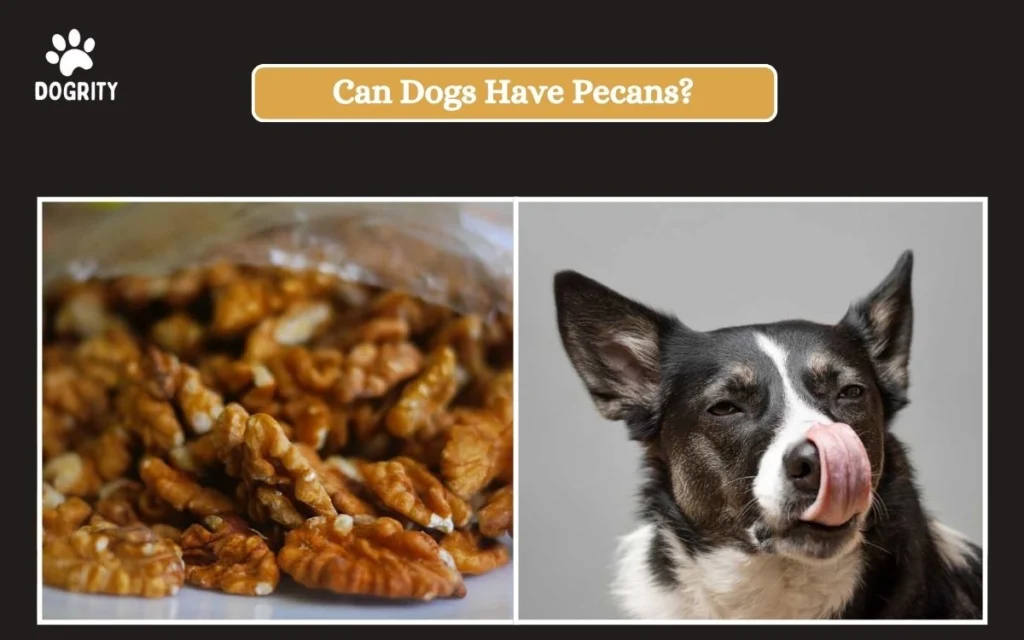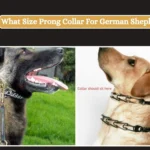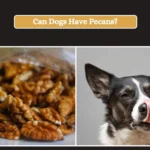Can Dogs Have Pecans? Understanding the Risks and Safety Tips
Particularly with regards to food, dogs are inquisitive animals. Owners often share snacks with their dog friends, but specific foods, such as nuts, must be handled with care. This guide will give you all the answers to all of your questions about Can dogs have pecans? and the effects of your dog eating one.
- Can Dogs Have Pecans? Understanding the Risks and Safety Tips
- Are Pecans Safe for Dogs?
- Why Are Pecans Bad for Dogs?
- Can Dogs Eat Small Amounts of Pecans?
- What Happens If a Dog Eats Pecans?
- My Experience With My Dog and Pecans
- Are Other Nuts Safe for Dogs?
- Preventing Pecans from Harming Your Dog
- What To Do If Your Dog Eats Pecans
- Conclusion
- FAQ’s
Are Pecans Safe for Dogs?
The quick answer is that dogs shouldn’t eat pecans. Although their seeming innocuousness, walnuts may seriously threaten your dog’s health.
Why Are Pecans Bad for Dogs?
Toxins
Dogs are poisoned by juglone, an element found in walnuts. Symptoms such as vomiting, bowel movements, or even more serious issues may result from eating nuts.
Choking Hazard
Whole pecans can cause digestive problems or be dangerous to eat, especially when they are in their shell.
High Fat Content
Pecans are high in fat, which can cause dogs to develop the condition, a painful and sometimes fatal condition.
Mold
Pecans, particularly if old or improperly stored, can grow mold that produces tremorgenic mycotoxins. These toxins can cause seizures and neurological issues in dogs.
Can Dogs Eat Small Amounts of Pecans?
It is not recommended to eat even just a small amount of pecans. A greater quantity or regular eating of pecans might result in toxic building or health issues, even if one or two may not be harmful right away. Keep a watchful eye out for any signs of issues if your dog accidentally eats one pecan.
What Happens If a Dog Eats Pecans?
If your dog eats pecans, symptoms may vary depending on the quantity consumed. Common signs include:
- Vomiting
- Diarrhea
- Loss of appetite
- Lethargy
- Seizures (in severe cases)
If you notice any of these symptoms, contact your veterinarian immediately. Early intervention can prevent serious health issues.
My Experience With My Dog and Pecans
I once caught my dog sniffing around a bag of mixed nuts that had fallen on the floor. While I managed to grab most of them, I noticed he had eaten a pecan. Initially, I wasn’t too worried, but within a few hours, he started vomiting and seems lethargic. A quick call to my vet confirmed the need for immediate attention. Thankfully, with prompt care, he recovered fully. This incident taught me the importance of keeping potentially harmful foods out of reach.
Are Other Nuts Safe for Dogs?
While pecans are harmful, not all nuts are equally dangerous. Here’s a quick overview:
- Walnuts: Walnuts should be avoided because, like pecans, they can be poisonous.
- Almonds: Usually not harmful, it may induce bowel issues.
- Cashews: High in fat, currently safe in moderation.
- Peanuts: Generally safe, but stay away from flavored or salted types.
Before adding any new food to your dog’s diet, always get advice from your veterinarian.
Preventing Pecans from Harming Your Dog
To keep your dog safe:
- Store Pecans Securely: Keep pecans and other nuts in sealed containers out of your dog’s reach.
- Monitor Outdoor Areas: If you have pecan trees in your yard, regularly clean up fallen nuts.
- Educate Family and Friends: Make sure everyone knows not to feed your dog pecans.
- Be Vigilant During Holidays: Treats like pecan pie or praline pecans are especially tempting but should never be shared with dogs.
What To Do If Your Dog Eats Pecans
If you suspect your dog has eaten pecans:
- Assess the Situation: Find out how many pecans were eaten and if they were rotten, uncooked, or shelled.
- Contact Your Veterinarian: Provide details about your dog’s size, age, and any symptoms.
- Follow Professional Advice: Your veterinarian may recommend keeping an eye on your dog at home or taking him in for an examination.
Conclusion
Some foods, like pecans, are better avoided, even though it can be tempting to give our pets our favorite hunger. Protecting your dog’s health and happiness can be achieved through staying aware of the risks and taking preventative action. Always err on the side of caution and get advice from your veterinarian if you’re ever unsure about a particular meal.
By staying informed, you can ensure your dog enjoys a safe and nutritious diet, without the risks posed by pecans.







